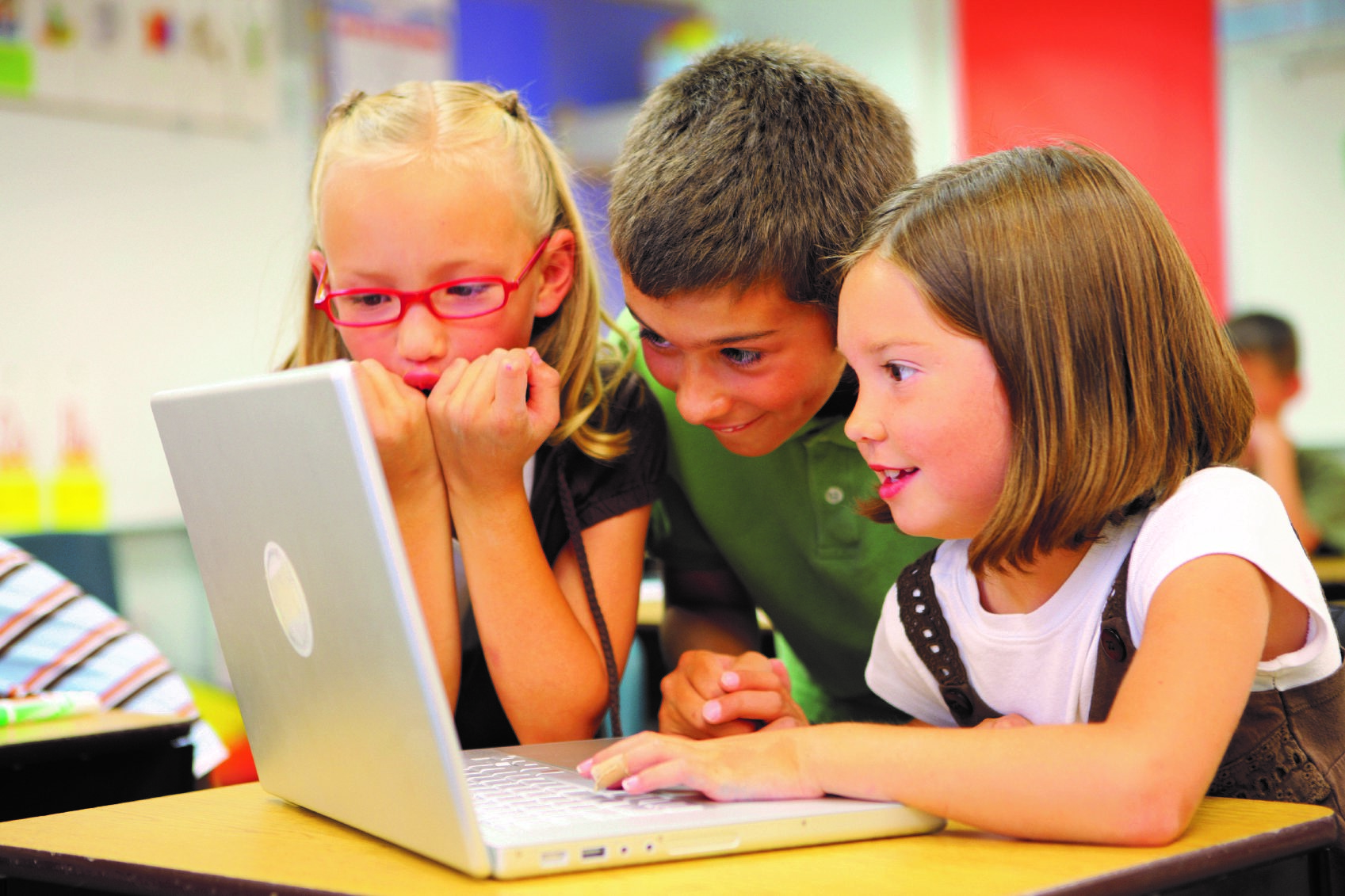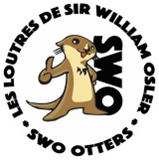Academics & Classes
January 29, 2025
OUR FRENCH IMMERSION PROGRAM AT
ÉCOLE SIR WILLIAM OSLER
ÉSWO Priorities
- Staff and students will continue to develop language acquisition strategies in order to increase French oral language use. Students will be able to express themselves academically and socially in French on a consistent basis throughout the day.
- Staff will provide a structured, balanced literacy program that presents both explicit teaching and engaging reading and writing activities through opportunities to write every day all kinds of texts for different purposes as well as provide a choice of books to satisfy children's curiosity. Students will identify themselves as competent readers and creative authors who read and write throughout life by understanding that reading and writing are a reflective and interactive process.
- Staff aim to foster confident, experienced mathematicians, who are flexible thinkers, capable of solving problems in creative ways. By focusing on the process rather than the product, staff will create a safe, supportive and inclusive environment that encourages risk-taking, independence and communication of a wide range of strategies and approaches, using the French language to express mathematical understanding.
- Staff and students will have meaningful and purposeful dialogue and decisions regarding Truth and Reconciliation, as well as actions to be taken. Students will be empowered with educational awareness and competency regarding Indigenous peoples in Canada and traditional Indigenous cultures worldviews, spiritualties, and histories. Staff will focus on best practices where education will not only unearth the past, but also empower students to see how reconciliation is possible for the future.
- Staff and students will continue to learn and develop their understanding related to the environment and sustainability. Staff and students will continue to gain knowledge of the 17 sustainable development goals set out by the United Nations. In 2022/23, we focused on goal #12 Responsible Consumption and Production and 2023/24, we focused on Goal # 6 Clean water and sanitation. We will continue with these and add #15 Life on Land.
Our belief statement
As teachers at École Sir William Osler, we believe that all children are capable of learning and it is up to the teachers to create a successful learning environment in which children feel safe, loved, and accepted for who they are. We have the opportunity to encourage children to set realistic learning goals, enjoying real-life, hands-on learning experiences. Through positive role modeling, we strive to create independent problem solvers and creative, critical thinkers.
English Language Arts (Listening, Speaking, Reading, Writing, Viewing and Representing)
The new ELA curriculum identifies the four practices that ground all teaching and learning in ELA: Language as Sense Making; Language as System; Language as Exploration and Design; Language as Power and Agency. These practices name the valued ways of knowing, thinking, doing and being meaningfully rich in English Language Arts.
Students explore various topics and activities such as: reading to self, reading to others, listening to reading, practicing writing, and word study. Other activities such as: setting goals, reading strategies, Home Reading program, journal writing, spelling, literary genre study, author study, and class books production are also included.
Students explore various topics and activities such as: reading to self, reading to others, listening to reading, practicing writing, and word study. Other activities such as: setting goals, reading strategies, Home Reading program, journal writing, spelling, literary genre study, author study, and class books production are also included.
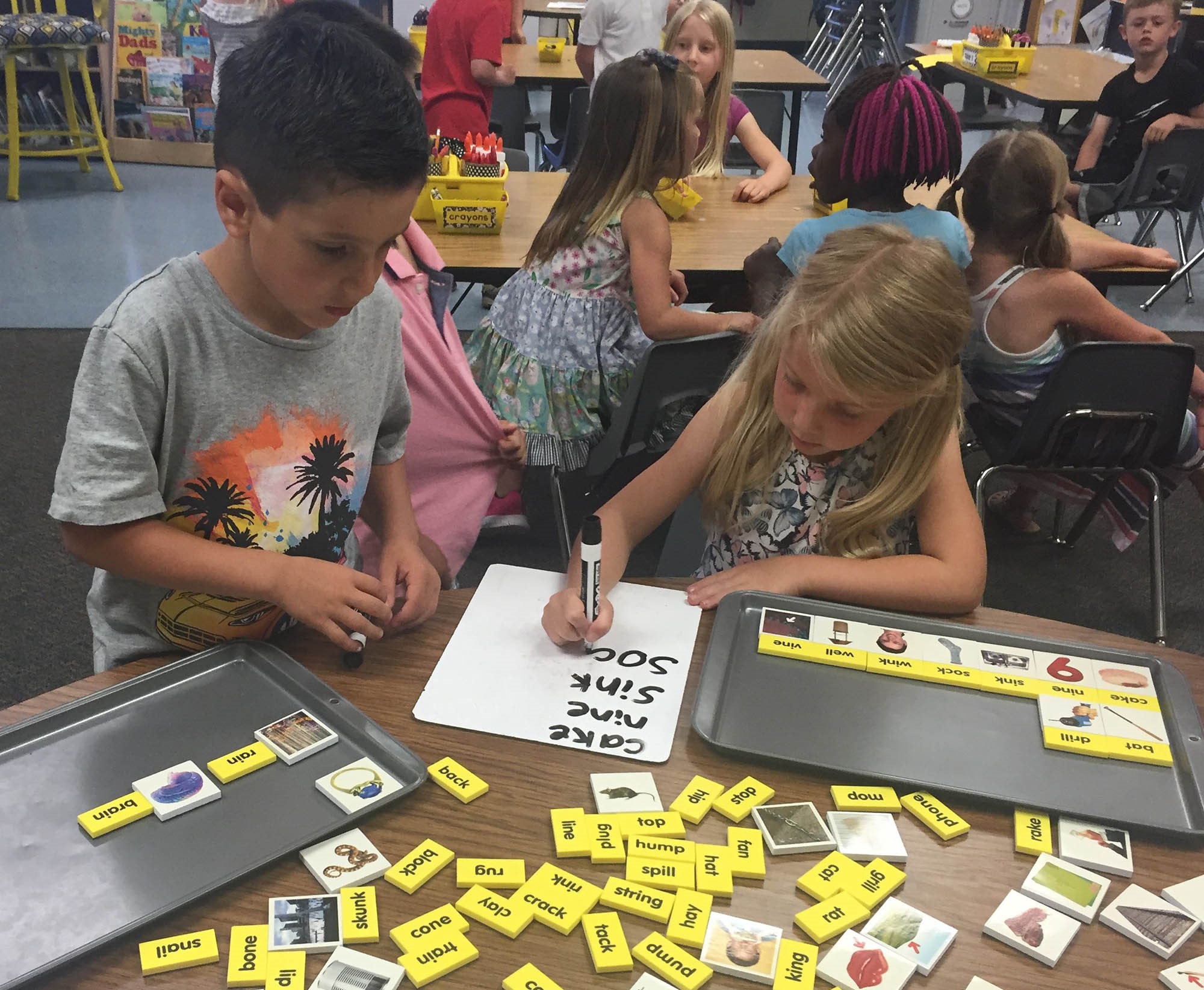
French Language Arts (Listening, Speaking, Reading, Writing, Viewing and Representing)
The new FLA curriculum is based around three competencies: Understanding the meanings of ideas and information (listening, reading, visual interpretation); Communicating needs and intentions (oral, writing, visual representation); Identifying as a learner in French Immersion.
The role of the French language in FLA is as a tool for communication, a tool for cognitive development and as a way for developing personal and social growth.
During FLA, students are exposed to a variety of texts (oral, written, visual and multimedia). They are given opportunities to participate in discussions. Students self evaluate not only their learning, but also their development of their identity as a French language learner. Students develop sociocultural referents through songs, poems stories, oral language and community. Students explore various themes and topics to enhance vocabulary development, spelling, and oral and written grammar.
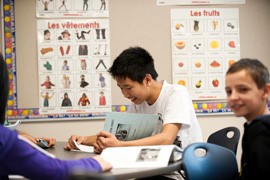
Mathematics
Mathematics in French Immersion is taught in French. Through a variety of educational games, hands-on activities and opportunities to share and practice, students explore the four strands of mathematical learning (Number Sense, Patterns and Relationships, Shape and Space and Statistics and Probability).
Number Sense, which can be thought of as intuition about numbers, is the most important foundation of numeracy.
Patterns is about recognizing, describing, and working with numerical and non-numerical patterns.
Shape and Space involves visualization, mental imagery, and spatial reasoning. These skills are central to the understanding of mathematics.
Statistics and Probability is the interpretation of data and making predictions.
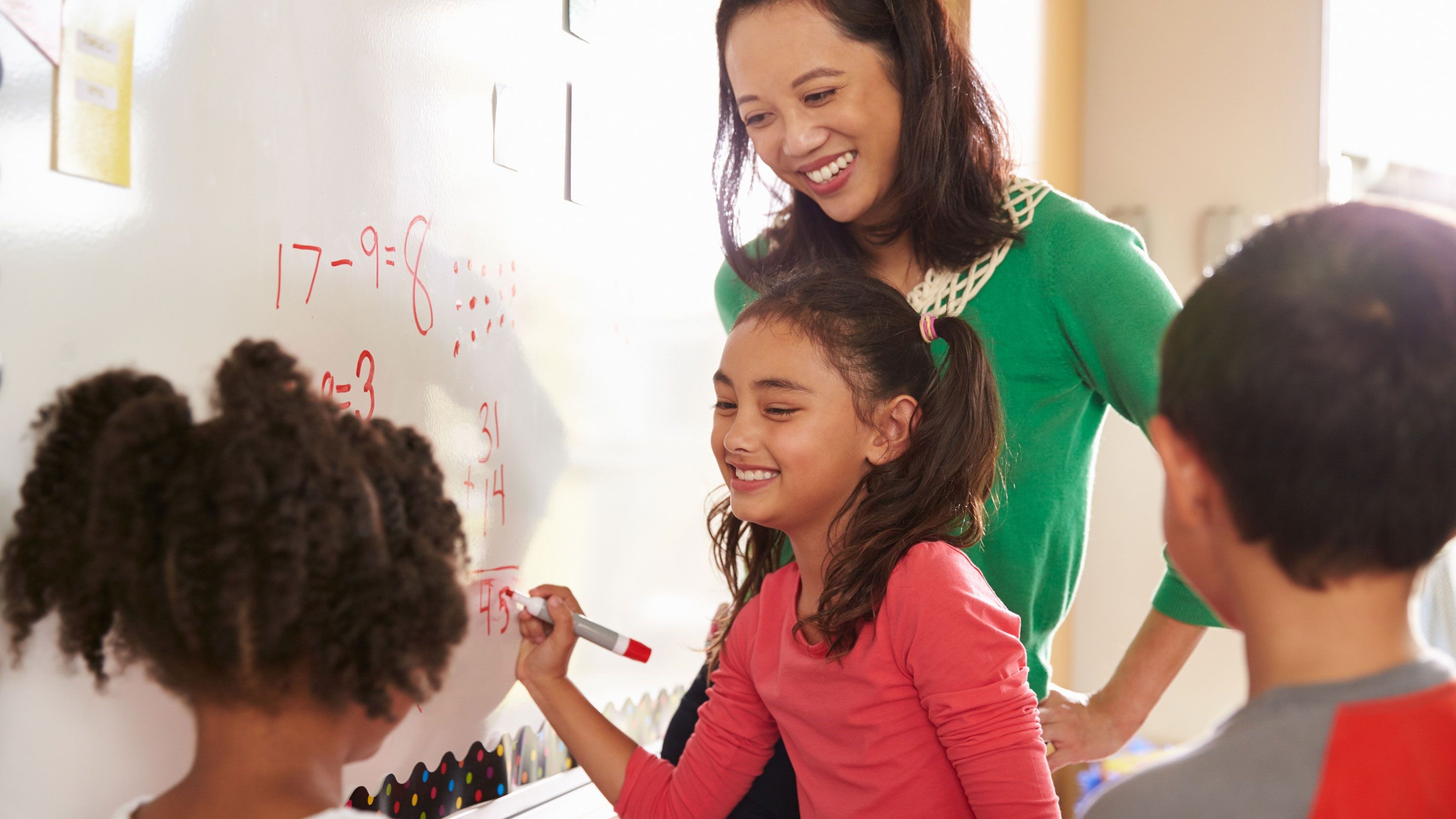
Social Studies
Social Studies involves the development of inquiry and research skills and methods, historical thinking and geographical thinking. The skills and competencies include: active democratic citizenship; managing information and ideas; critical and creative thinking; and communication. The units of study are as follows:
Kindergarten: Me; The people around me; The world around me
Grade 1: I belong; My environment; Connecting with others
Grade 2: Our local community; Communities in Canada; The Canadian community
Grade 3: Connecting with Canadians; Exploring the world; Communities of the world; Exploring an ancient society
Grade 4: Geography of Canada; Living in Canada; Canada's north; Living in Manitoba; History of Manitoba
Grade 5: First Peoples; Early European colonization (1600-1763); Fur trade; From British colony to Confederation (1763-1867)
Grade 6: Building a nation (1867-1914); An emerging nation (1914-1945); Shaping contemporary Canada (1945-present); Canada today- democracy, diversity and the influence of the past.
Grade 7: People and places in the world: World geography; Global quality of life; Ways of life in Asia, Africa or Australasia; Human impact in Europe or the Americas
Grade 8: World History Societies of the Past: Understanding societies past and present; Early societies of Mesopotamia, Egypt or the Indus Valley; Ancient societies of Greece and Rome; Transition to the modern world (circa 500-1400); Shaping the modern world (circa 1400-1850)
Grade 7: People and places in the world: World geography; Global quality of life; Ways of life in Asia, Africa or Australasia; Human impact in Europe or the Americas
Grade 8: World History Societies of the Past: Understanding societies past and present; Early societies of Mesopotamia, Egypt or the Indus Valley; Ancient societies of Greece and Rome; Transition to the modern world (circa 500-1400); Shaping the modern world (circa 1400-1850)

Science
The practices of science and technological design support students in acquiring a better understanding of how scientific knowledge is produced and how solutions to practical problems are designed. Students engaging in scientific inquiry and design activities simultaneously use knowledge, skills and attitudes, which deepens their understanding of concepts and provides exposure to the many approaches that are used in science and technology. The units of study are as follows:
Kindergarten: Trees; Colours; Paper
Grade 1: Characteristics and needs of living things; The senses; Characteristics of objects and materials; Daily and seasonal changes
Grade 2: Growth and changes in animals; Properties of solids, liquids and gases; Position and motion; Air and water in the environment
Grade 3: Growth and changes in plants; Materials and structures; Forces that attract or repel; Soils in the environment
Grade 4: Habitats and communities; Light; Sound; Rocks, minerals and erosion
Grade 5: Maintaining a healthy body; Properties of and changes in substances; Forces and simple machines; Weather
Grade 6: Diversity of living things; Flight; Electricity; Exploring the solar system
Grade 7: Interactions within ecosystems; Particle theory of matter; Forces and structures; Earth's crust
Grade 8: Cells and systems; Optics; Fluids; Water systems
Grade 7: Interactions within ecosystems; Particle theory of matter; Forces and structures; Earth's crust
Grade 8: Cells and systems; Optics; Fluids; Water systems
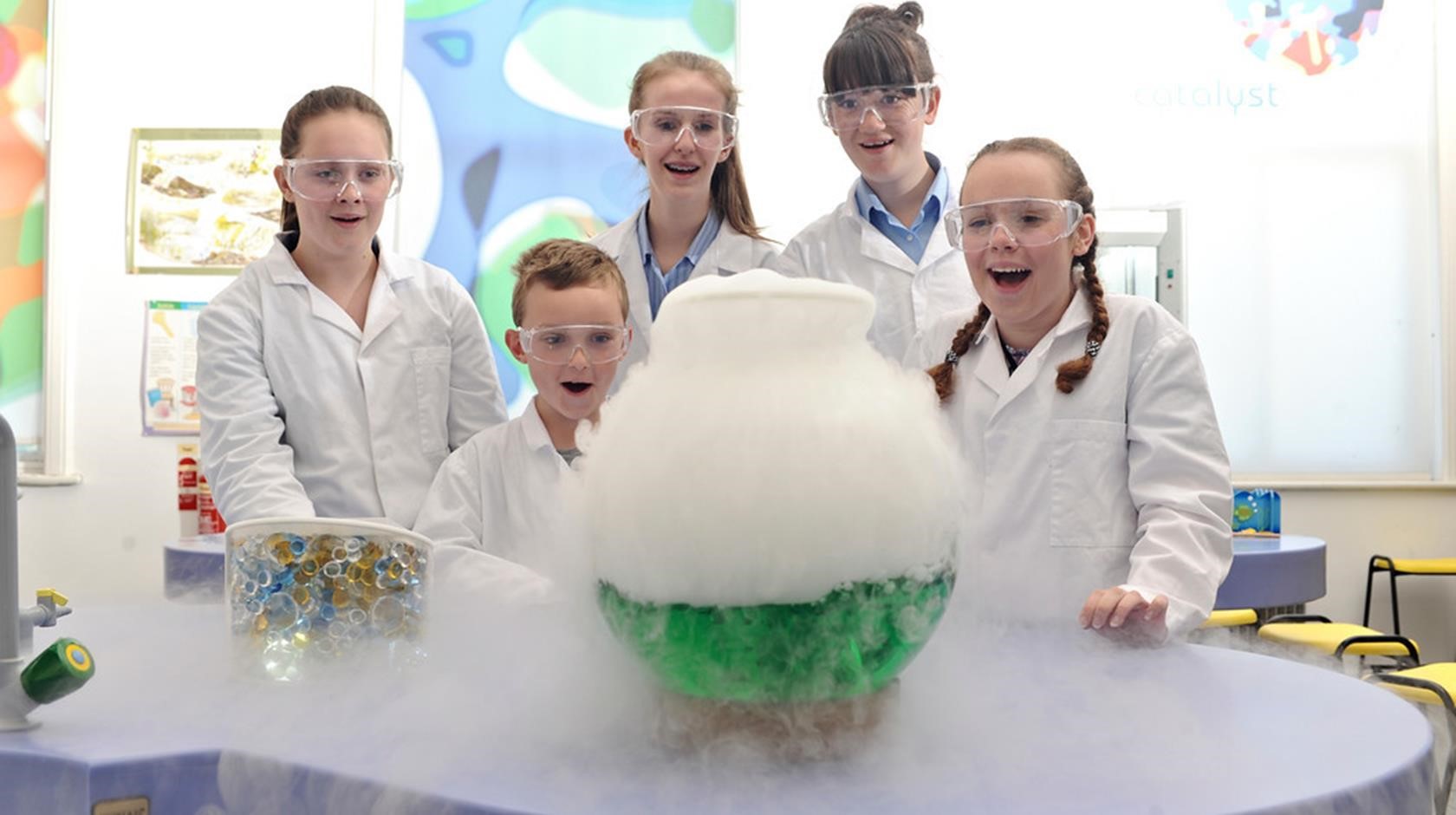
Health
In Health, students learn about healthy living choices, and the importance of good nutrition, exercise, sleep, dental hygiene and their social and emotional well-being. We use programs such as Kids in the Know (personal safety program) and Second Step (skills for learning self-regulation, emotion management, problem solving and empathy). Family Life education begins in Grade 4.
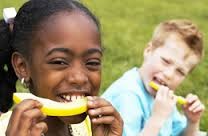
Technology in the classroom
Technology is used as a tool to support learning. Students are provided with the opportunity to use various forms of technology in the classroom. Students have access to IPads and chromebooks where they can explore a variation of education apps and learn to demonstrate research skills and share their critical and creative thinking skills.
